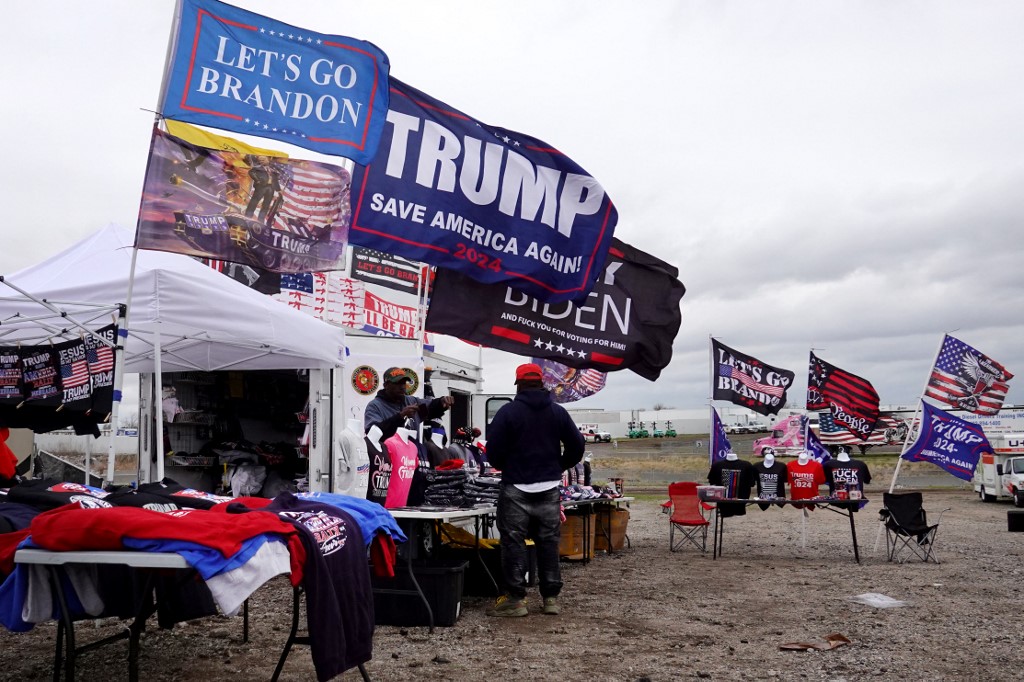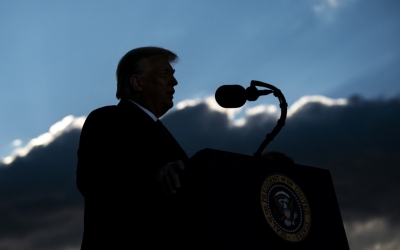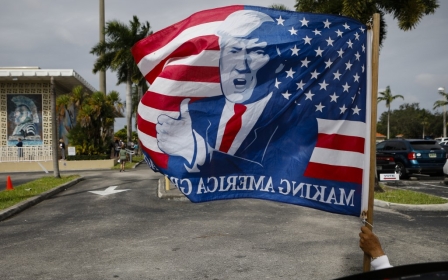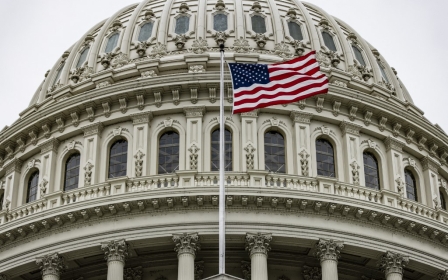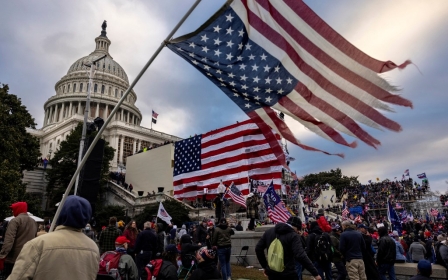Trump and the myth of American democracy

The bold and brazen sense of self-entitlement with which Donald Trump entered and triumphed in American politics might boggle your mind. His defeat in the 2020 presidential election only intensified this sense of entitlement. How dare a whole coterie of Black and brown people come together to deny him his victory, when the majority of white people (as he believes) voted for him - and, in fact, adore him and see him as God’s gift to miserable humanity?
He said as much himself during the 2016 presidential election campaign, from which he emerged victorious: “I could stand in the middle of Fifth Avenue and shoot somebody, and I wouldn’t lose any voters, OK? It’s, like, incredible.”
Incredible indeed, but we’d better believe it. The US today is deeply divided between those (largely Black and Brown people) who despise Trump, and those (mostly white Christian evangelicals, backed by overseas supporters in Israel and India) who admire him and wish there were more politicians like him.
It is a racially slanted white supremacist oligarchy, with white financial and political elites at the top
But for the liberal imperialists in charge of public opinion in this country, Trump is an embarrassment who will not go away. These liberal Americans always have an eye on the global image of the US, hoping to sustain the powerful illusion that it is a force for good in the world. To them, Trump is like a foul smell that refuses to dissipate.
Trump has exposed the racist, white supremacist underbelly of American democracy for the whole world to see - and the liberal custodians of this delusion of “democracy” do not know quite how to respond.
The issue now paramount for these loudly liberal Americans is the illegality of Trump’s behaviour. A recent editorial in the New York Times highlights the paradox that has trapped American liberalism: should Trump be prosecuted, amid mounting evidence of his crimes, or should he be allowed to continue wreaking havoc on the delusion of American democracy, for fear that if he is held accountable, he may draw even more support from his followers?
Above the law
This false fixation with the legal aspect of the paradox, and the fact that Trump shows utter contempt for the law, signifies something far more serious. People like Trump - and many of the millions who want him to return to the White House - believe they are above the law.
In their view, laws were meant to keep non-white slaves, indigenous people, immigrants and the working classes under the yoke of their white masters. Laws were never meant to be applied to those white masters. This is what the world sees in the debacle of the Trump presidency - which is precisely what bothers the liberal imperialists congregating at the New York Times, the Washington Post and other US institutions.
These custodians of American liberalism like the lie of American democracy. They would readily admit there have been problems: the slaughter of Indigenous people, the enslavement of African Americans, the nasty racist attitudes towards more recent immigrants, and a sustained course of homophobia, Islamophobia, xenophobia and antisemitism. But at “its heart”, they maintain, American democracy is a good thing - thus, the proclivity to pontificate to other nations about “their” human rights violations.
Trump and his millions of American supporters have seen through this lie - and for the rest of the world, that is a good thing, for two reasons. Firstly, this pushes the world at large to examine its own history, including Eurocentric colonialism and homegrown tyranny, along with limited and flawed democratic experiments. Secondly, the US itself must now be judged by the measures it has used to denounce other countries, from “banana republics” to “Third World dictatorships”.
That the US is not a democracy, but rather an oligarchy, is not exactly a revelation. As recently as 2014, a major study by scholars at Princeton and Northwestern universities concluded that the US was ruled by “economic elites and organised groups representing business interests”, and that average citizens had little to no impact on their own national destiny.
Even a former US president, Jimmy Carter, once publicly admitted that the country was “an oligarchy with unlimited political bribery”. President Joe Biden himself recently warned that American democratic institutions were under assault by Trump’s brand of politics.
Ideological battleground
What kind of oligarchy are we dealing with? It is a racially slanted white supremacist oligarchy, with white financial and political elites at the top. Yet, still to this day, “American democracy” has become an ideological force of militant hegemony. Undemocratic are those countries that disagree with American hegemony: Russia, China and Iran are chief among them.
Abominable monarchies like Saudi Arabia, or military juntas like Egypt, or settler-colonies like Israel are all perfectly fine specimens of politics, so long as they remain on the American side against the “undemocratic” countries. What this all means is that the word “democracy” has ceased to mean anything outside the ideological battleground of the US and its nemeses.
But can the US really be an arbiter of what that word means? Some 74 million Americans voted for Trump in his failed 2020 bid for reelection. This does not mean every one of those 74 million people is a racist bigot, and there is plenty of racism and bigotry on the Democratic side as well.
There is a deeply rooted and legitimate fear among millions of disenfranchised Americans over the neoliberal globalisation of their economic fate. This is the same sentiment that fuelled Brexit in the UK.
But we need not side with former British Prime Minister Boris Johnson or Trump to see the terror of globalised neoliberalism. Their massive support base shows that the ideological force of white supremacy has always been integral to “American democracy”.
The fact that we lack a historical model for democracy - from its Greek theorisation, to its European Enlightenment gestations, to its current Indian or American mockeries - is no cause for celebration. The authoritarian models of China or Russia, or the military juntas ruling Egypt or Myanmar, or the populist thuggery in Brazil are certainly no alternatives.
Still, I would venture to say that the citizens of Egypt, Iran or Russia, who have no illusions of living in a democracy, are in a far better position to assess their social and political existence. In the US, conversely, the bizarre, fanatical delusion of democracy - even after the debacle of the Trump presidency - refuses to die.
There is a deeply liberating power in realising that we don’t live in a democracy; that the very idea of “democracy” is a powerful illusion at the service of the political elite, and thus entirely inimical to our internal democratic desires.
The views expressed in this article belong to the author and do not necessarily reflect the editorial policy of Middle East Eye.
Middle East Eye propose une couverture et une analyse indépendantes et incomparables du Moyen-Orient, de l’Afrique du Nord et d’autres régions du monde. Pour en savoir plus sur la reprise de ce contenu et les frais qui s’appliquent, veuillez remplir ce formulaire [en anglais]. Pour en savoir plus sur MEE, cliquez ici [en anglais].



